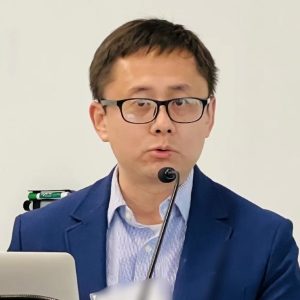Tao Peng
Lecturer in Chinese
Office: 510 Kent Hall
Office Hours: MW 1:00-2:30
Phone: (212) 854-3604
Email: tp2728@columbia.edu
Educational Background
Ph.D.: Comparative Literature, University of California, Riverside.
Ed.M.: Curriculum and Methodology of Teaching Chinese as a Second Language, Beijing Language and Culture University
B.A.: Chinese Language and Literature, Hunan Normal University
Classes Taught
CHNS UN1101 First Year Chinese I
CHNS UN1102 First Year Chinese II
CHNS UN2201 Second Year Chinese N I
CHNS UN2202 Second Year Chinese N II
CHNS GU4017 Fourth Year Chinese Advanced I
Research Interests
Tao Peng earned his Ph.D. in Comparative Literature from the University of California, Riverside. His primary research focuses on modern Chinese fiction with a special interest in the interactions between language and literature. His dissertation, “The Emergence of the Modern Chinese Narrator: Studies of Lu Xun, Shi Zhecun, Sun Li, and Wang Zengqi,” is an interdisciplinary project of literary criticism, narratology, and linguistics. Tao Peng joined the Columbia faculty as a Lecturer of Chinese in the Fall of 2021. Before joining the Columbia faculty, Tao Peng taught Chinese language classes at Princeton University, Middlebury Chinese School, and several language programs in China. He also taught and coordinated various levels of Chinese courses at the Princeton in Beijing Summer Program.




